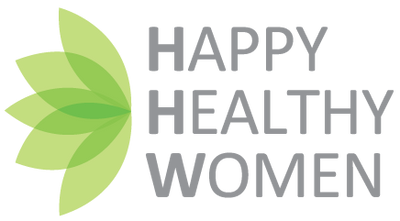Whether it’s taking on a project like starting a blog on a new platform or implementing a new way of eating for your health, getting started can feel overwhelming. You’ve likely heard it before: “getting started is the hardest part”. But why?
The way that we think about starting something new is very powerful. Our thoughts are what create our feelings, and because as humans we act based on emotion much of the time, those sentences running through our brains carry a lot of weight. If we allow our brains to run on autopilot, the thoughts that naturally arise may not be the ones that are best for helping us move in the direction we want to go. And so, we can end up with unintentional results.
We want to think thoughts that elicit a feeling in our body that will have us take action toward our goals. The feeling of overwhelm is not one of those productive feelings.
So what kind of thoughts are causing such overwhelm? Things like:
I don’t know where to start
There are so many things to consider
I want to make sure I get it right
I don’t know the steps involved
This is going to be so time-consuming
Should I bother
Is it worth it
I don’t have the (tools, resources, expertise) that I need
I’m not ready
Maybe this can wait

Let’s break these thoughts down into a few categories:
Confusion:
Thoughts like “I don’t know” leave us feeling confused and not sure how or where to start. Confusion can lead to things like over-researching, information overload, and analysis paralysis. What confusion doesn’t do: help us move forward with confidence.
Some great questions to ask yourself when you are feeling confused:
What if I did know?
What is my best guess?
What would I tell a good friend in this situation?
What would my coach or mentor say?
These questions can get your brain focused on possible solutions.
Perfectionism:
Thoughts like: “there’s no point in doing this if I don’t get it right” are sign you may be on the perfectionist train. Perfectionism has it’s benefits, such as, producing quality work and doing a great job for our clients. However, it can be paralyzing and prevent us from getting our value out into the world.
Everyone has to start somewhere, and when we start something new, there will always be room for improvement. Having the courage to put yourself out there and do something new is where it begins.
Some useful thoughts to use when you are feeling like a perfectionist:
Even my B grade work has the potential to change someone’s life
Imperfection is relatable and can work in my favour
Indecision:
We often don’t realize that when we fail to make a decision, we are in fact deciding to stay where we are. Questions like: “should i bother?”, “is it worth it?”, or “is this the right time?” can really hold us back. These thoughts provoke feelings of anxiety or even complacency, which are not useful in brining us closer to our desired outcomes. Indecision takes up mental space and sucks our energy. Give yourself a deadline, make the decision, and relief will follow.
If you find yourself in indecision, a useful thought is:
Any decision I make will give me clarity on what I truly want
Confusion, perfectionism and indecision lead to the thought “this is too much” which creates overwhelm. You may notice that you are fidgety, unfocused, or that your breathing has become shallow. These physical signs give us insight into what is going on in our brains and the types of thoughts we are thinking.
So, what can we do about it?
Starting is the hardest part, but, if we can get our brain working for us rather than against us, then we are off to the races!

Whitney Coupland is a Certified Health and Life Coach. In her coaching practice, Whitney works with those who want to improve their health while still enjoying their life. You can connect with Whitney by visiting her website WhitneyCoupland.com, booking a free consultation or finding her on Instagram @WhitneyCoupland_
Comments will be approved before showing up.

Lucille Necas
July 20, 2022
Thanks for these tips Whitney. They’re very clear and applicable.